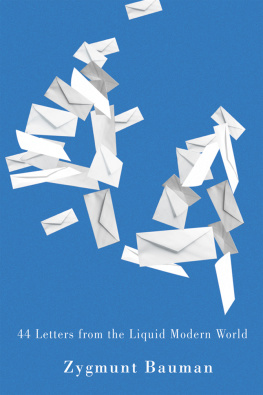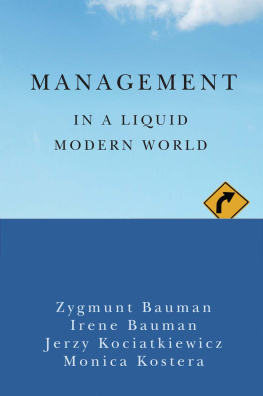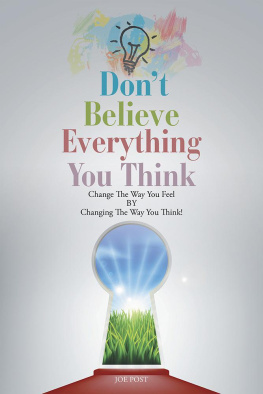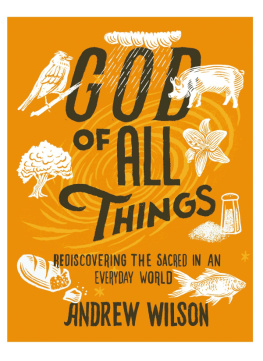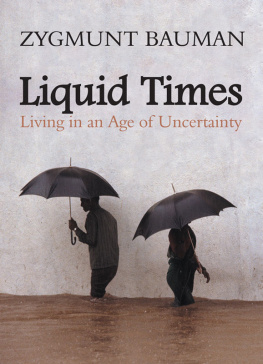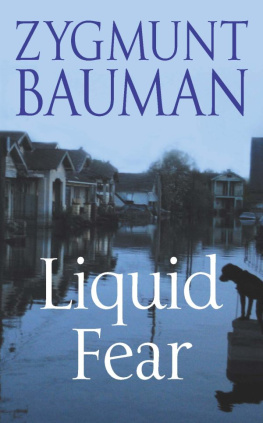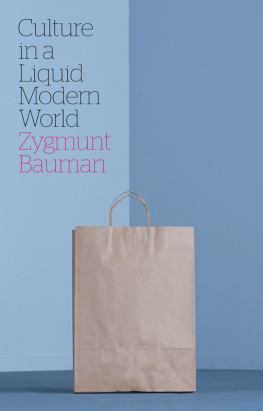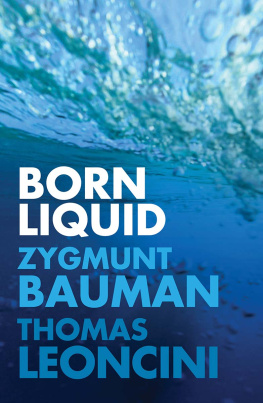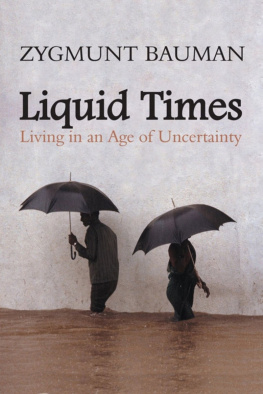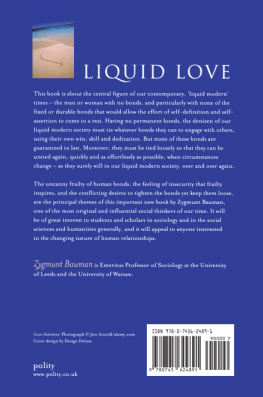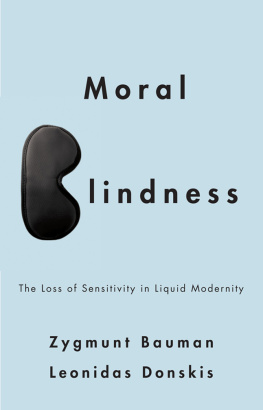All rights reserved. Except for the quotation of short passages for the purpose of criticism and review, no part of this publication may be reproduced, stored in a retrieval system, or transmitted, in any form or by any means, electronic, mechanical, photocopying, recording or otherwise, without the prior permission of the publisher.
A catalogue record for this book is available from the British Library.
The publisher has used its best endeavours to ensure that the URLs for external websites referred to in this book are correct and active at the time of going to press. However, the publisher has no responsibility for the websites and can make no guarantee that a site will remain live or that the content is or will remain appropriate.
Every effort has been made to trace all copyright holders, but if any have been inadvertently overlooked the publisher will be pleased to include any necessary credits in any subsequent reprint or edition.
On writing letters from a liquid modern world
Letters from the liquid modern world This is what the editors of La Repubblica delle Donne asked me to write and send to its readers once a fortnight and what I have been doing for almost two years (2008 and 2009; they are collected here in an edited and somewhat extended version).
From the liquid modern world: that means from the world you and I, the writer of forthcoming letters and their possible/probable/hoped for readers, share. The world I call liquid because, like all liquids, it cannot stand still and keep its shape for long. Everything or almost everything in this world of ours keeps changing: fashions we follow and the objects of our attention (constantly shifting attention, today drawn away from things and events that attracted it yesterday, and to be drawn away tomorrow from things and events that excite us today), things we dream of and things we fear, things we desire and things we loathe, reasons to be hopeful and reasons to be apprehensive. And the conditions around us, conditions in which we make our living and try to plan our future, in which we connect to some people and disconnect (or are disconnected) from others, keep changing as well. Opportunities for more happiness and threats of misery flow or float by, come and go and change places, and more often than not they do all that too swiftly and nimbly to allow us to do something sensible and effective to direct or redirect them, keep them on course or forestall them.
To cut a long story short: this world, our liquid modern world, keeps surprising us: what seems certain and proper today may well appear futile, fanciful or a regrettable mistake tomorrow. We suspect that this may happen, so we feel that like the world that is our home we, its residents, and intermittently its designers, actors, users and casualties, need to be constantly ready to change: we all need to be, as the currently fashionable word suggests, flexible. So we crave more information about what is going on and what is likely to happen. Fortunately, we now have what our parents could not even imagine: we have the internet and the world-wide web, we have information highways connecting us promptly, in real time, to every nook and cranny of the planet, and all that inside these handy pocket-size mobile phones or iPods, within our reach day and night and moving wherever we do. Fortunately? Alas, perhaps not that fortunately after all, since the bane of insufficient information that made our parents suffer has been replaced by the yet more awesome bane of a flood of information which threatens to drown us and makes swimming or diving (as distinct from drifting or surfing) all but impossible. How to sift the news that counts and matters from the heaps of useless and irrelevant rubbish? How to derive meaningful messages from senseless noise? In the hubbub of contradictory opinions and suggestions we seem to lack a threshing machine that might help us separate the grains of truth and of the worthwhile from the chaff of lies, illusion, rubbish and waste
In these letters, Ill try to do just what the threshing machine (absent now, alas, and probably for some time) would have done for us had it been in our possession: to begin, at least, to separate the important from the insubstantial, things that matter and are likely to matter more and more from false alarms and flashes in the pan. But since, as mentioned before, this liquid modern world of ours is constantly on the move, we all are willy-nilly, knowingly or not, joyfully or plaintively, perpetually carried along in travel even if we try to stay still and hold on to one place. The letters, therefore, could not be other than travel reports even though their author has not budged from Leeds, the city in which he lives; and the stories they will be telling will be travelogues: stories from and of travels.
Walter Benjamin, a philosopher with an eye uniquely sharpened to spot any hints of logic and system in apparently diffuse and random cultural tremors, used to distinguish between two types of stories: sailors stories and peasants stories. The first are tales of things bizarre and unheard of, of far-away places, never visited and probably never to be visited, of monsters and mutants, witches and sorcerers, gallant knights and scheming evil-doers people jarringly different from the people listening to the story of their exploits, and doing things which other people (particularly those who listen, enchanted and bewitched, to the sailors tale) would never contemplate or imagine doing, let alone dare to do. Peasants stories, on the contrary, are tales of ordinary, close-by and apparently familiar events, like the ever-repeated annual cycle of seasons or the daily chores of the household, farm and field. I said apparently familiar, since the impression of knowing such things thoroughly, inside out, and therefore expecting there to be nothing new to be learned from and about them, is also an illusion in this case coming precisely from their being too close to the eye to see them clearly for what they are. Nothing escapes scrutiny so nimbly, resolutely and stubbornly as things at hand, things always there, never changing. They are, so to speak, hiding in the light the light of deceptive and misleading familiarity! Their ordinariness is a blind, discouraging all scrutiny. To make them into objects of interest and close examination they must first be cut off and torn away from that sense-blunting, cosy yet vicious cycle of routine quotidianity. They must first be set aside and kept at a distance before scanning them properly can become conceivable: the bluff of their alleged ordinariness must be called at the start. And then the mysteries they hide, profuse and profound mysteries those turning strange and puzzling once you start thinking about them can be laid bare and explored.
The distinction made by Benjamin almost a century ago is no longer as clear-cut as it originally was: sailors no longer have a monopoly on visiting bizarre lands, while in a globalized world in which no place is really separate and secure from the impact of every and any other place on the planet, however far away it might be, even the tales told by an erstwhile peasant may be difficult to distinguish from a sailors story. Well, what I am going to try for in my letters will be, so to speak, sailors stories as told by peasants . Tales drawn from the most ordinary lives, but as a way to reveal and expose the extraordinariness we would otherwise overlook. If we wish them to become truly familiar , apparently familiar things need first to be made strange .

